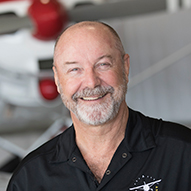Almost all flight school businesses that are based on publicly owned airports share one thing in common. There is an airport manager, or airport director they must interact with in order to conduct business. That's true of many airport businesses located on privately owned fields, too. Unless you own or have a contract to operate the entire airport facility, you have to operate in a partnership of sorts with a manager or management team who may be guided by motivations and goals that are completely different than those outlined in your business plan.
That is not to say the airport management is going to be belligerent, unwelcoming, or less than accommodating. In fact, airport managers have as much reason to provide their tenants and users with good customer service as any private business might. However, issues can arise if one side of the partnership loses sight of the fact that publicly owned airports operate differently than privately owned businesses do. As an example, because of the structure of his or her contracts and commitments, the airport manager may not have the latitude to offer discounts on lease rates or fuel prices. Similarly, the manager may not be able to approve certain operations without consent from an oversight committee or board that is populated by individuals who are rarely, if ever, seen at the airport.
Knowing what your airport manager can do, and can’t do, is important to you as the operator of a business on the field. That’s true now and it will be true in the future, too.
Maintaining a good working relationship with your airport management can provide a flight school business with access to information, insight, and assistance when it’s really needed. Whether you’re planning an expansion of your business, a change to your operating hours, or the addition of new people or equipment, the airport manager and his or her team can be a real asset to your business during the transition.
Mike Willingham, the executive director at Sebring Regional Airport in Florida, is an excellent example of an assertive airport management professional who is focused on helping the tenants and users on his airport thrive. Willingham says, “It’s critical that airport management recognize that the real reason we're there is to support the aeronautically related businesses on the airport.”
That support does not come without limits, however. Like flight school businesses, airport managers have restrictions they have to adhere to. The airport’s minimum operating standards provide both the manager and the business owner with the basic requirements for doing business on the field. Often, these documents establish the hours of operation, insurance minimums, manpower requirements, and equipment needs of an airport business. However, like all documents intended to provide guidance and establish standards, they can and must be amended from time to time. Maintaining a good working relationship with your airport manager can make the process of amending those documents more pleasant, more effective, and potentially even more favorable to the operation you intend to set up on the field.



